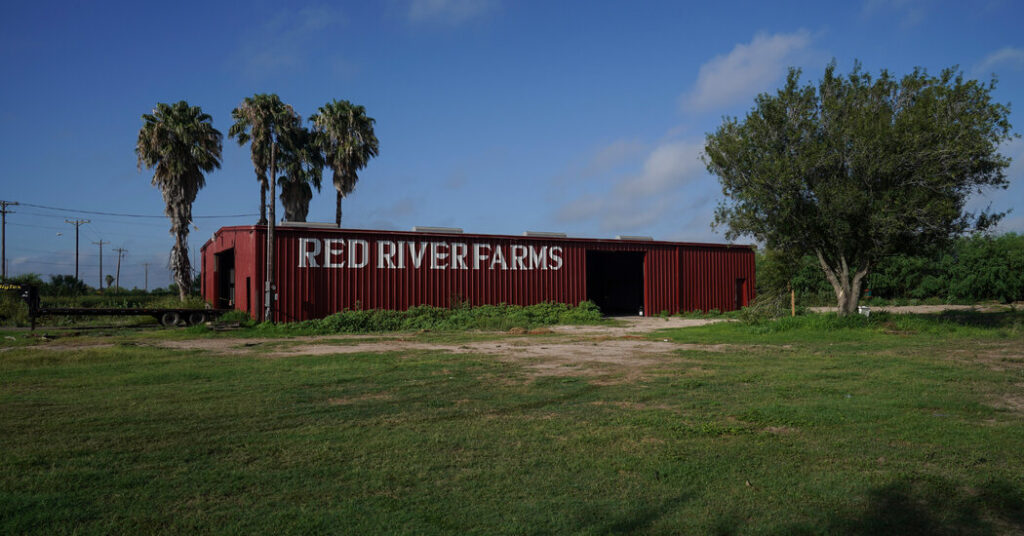
EDINBURG, Texas – On a recent morning, Alexandra, a 55-year-old undocumented immigrant, prepared to leave her aging trailer for work at a watermelon farm. Her son intervened, pleading with her not to go, fearing deportation. He showed her videos of federal agents apprehending migrants across the Rio Grande Valley. “That could be you,” he warned.
Immediate Impact on Agricultural Workers
President Trump’s shifting immigration policies have left farm workers in a state of uncertainty. Initially exempted, then targeted, and once again exempted, these workers face a precarious situation. According to the Agriculture Department, 42 percent of farm workers are undocumented, heightening the stakes for those in the agricultural sector.
Key Details Emerge from the Border Region
Nowhere is this fear more pronounced than along the southwestern U.S.-Mexico border. Here, for centuries, the frontier has been regarded as porous, a vital artery for labor. The recent enforcement measures have disrupted this long-standing dynamic, injecting fear into communities that rely heavily on undocumented workers.
Industry Response to Policy Shifts
The agricultural industry is grappling with these abrupt changes. Farmers report labor shortages as workers stay home, fearing raids. This has led to unharvested fields and financial losses.
“The inconsistency in policies is wreaking havoc,” said John Smith, a local farmer. “We can’t find the labor we need to bring in the crops.”
By the Numbers: The Impact of Immigration Policies
42% of farm workers in the U.S. are undocumented.
Recent reports show a 15% increase in deportation raids in the Rio Grande Valley.
Expert Analysis on Future Implications
Experts warn that continued enforcement could lead to severe economic repercussions. “The agricultural sector is heavily dependent on undocumented workers,” noted Maria Gonzalez, an immigration policy analyst. “Without them, the industry could face a significant downturn.”
Background Context: A History of Migration
The border region has long been a hub for migrant workers, with families like Alexandra’s contributing to the local economy for generations. The recent policies represent a stark departure from the past, where cross-border labor was a normalized aspect of life.
What Comes Next for Farm Workers?
The future remains uncertain for workers like Alexandra. As policy debates continue, many are left in limbo, unsure of whether to risk going to work or stay home in fear. The situation calls for urgent attention from policymakers to address the needs of both the agricultural industry and the workers it depends on.
The ongoing developments in immigration enforcement highlight the complex interplay between national policy and local economies. As the situation evolves, the eyes of the nation remain fixed on the border, where the impacts of these policies are felt most acutely.





